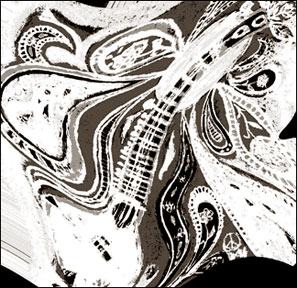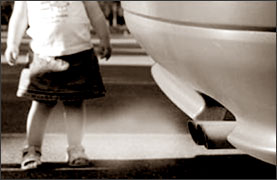|

Music therapy to heal troubled mind
By Ranga Chandrarathne
The Sala Nisala programme which will be launched on July 5, 2008, at
BMICH will be a novel experience for Sri Lankans. Though it is a
therapeutic programme, it has been titled as ‘a sound mind through
sensitive communication’, said Dr. Kapila Sooriyarachchi.
 Sensitivity is a characteristic inherent to human being. Men and
women are sensitive beings ever since their birth. Perhaps, a child’s
first response is to the heartbeat of the mother. After coming into the
world, the child responds to diverse sounds and objects that come into
contact with through five senses. Sensitivity is a characteristic inherent to human being. Men and
women are sensitive beings ever since their birth. Perhaps, a child’s
first response is to the heartbeat of the mother. After coming into the
world, the child responds to diverse sounds and objects that come into
contact with through five senses.
However, it is estrange that the same child would gradually become
insensitive along the path to adulthood. Social scientists and doctors
have been at their wits end to understand this phenomenon which
ultimately results in producing stress-prone men.
Though the terminology may differ, it has been identified that the
stress, depression and anxiety is caused by persistent worry that would
fill up a mind of an individual making them insensitive to the outside
world.
The society which makes up of such individuals is tend to be more
chaotic and troublesome place than a society of ordinary men and women
with sound minds.
Receptivity of the mind is more or less determined by myriads of
factors including a sense of being moral, feeling of lightness and
relaxation both at home and the places of work and the time and ability
of an individual to appreciate art and culture.
Sensitivity
“Troublesome mind is like a pitcher filled up to the brim. Worries of
past, present and uncertain expectations virtually fill up the mind so
that there is absolutely no space for absorption of information. Such
individuals cannot cope with increasing loads of work and tend to get
frustrated over a slightest incident.
What is needed in this scenario is to empty the mind of worries by
identifying them. One can also explore the healing properties of music
in this regard”, pointed out Dr. Kapila Sooriyarachchi on the
application of sensitive communication in healing troubled minds.
Insensitivity or one’s inability to respond can be caused by
socio-economic factors such as abject poverty, past worries, guilty
consciousness and repentance over the objectives that could not be
achieved. The very causation of anger, depression and anxiety over the
future lies in the troubled mind which is always pre-occupied with not
easily definable worries.
Though the worries may not have any bearing on the present, they will
keep the mind occupied claiming responsible for drastically reducing
mind’s capacity to absorb information and almost diminishing
individuals’ ability to respond and to be sensitive to the outside
world. This condition in the mind of an individual is incapable of
handling stress and tension.
However, it should also borne in mind that individuals are born with
tension which helps them to achieve their objectives in life. One should
have a kind of tension since one is born into the world. This tension is
latent in mind and is present in almost all the healthy individuals,
acts a prompt that lead to one’s goals and objectives.
For instance, the expectations of an individual and his or her goals
in life are prompted by this tension. Sense of foreboding of a
promotion, examination result or a scholarship causes a natural tension
which in turn prepares individuals for life. It is so helpful that
individuals cannot simply carry on even their ordinary task without this
tension.
However, the tension becomes a problem when it is manifested with
negative signs. It eventually developed into acute depression causing
considerable harm to the well-being of persons, among other things,
reducing their productivity and making them incapable of behaving
rationally in a tensed situation.
Social cohesion
Guilty conscience is one of the main factors that caused depression.
This is caused when a person is in sense of guilty over commission or
omission of an act which is expected by society for him to fulfil.
Person will suffer from guilty consciousness when he or she is failed to
fulfil moral and social obligations to immediate kith and kin and to the
community at large.
Both in conservative and liberal societies, individuals are expected
to play a societal role which is very often socially imposed on
individuals. Inability to fit into that role and to fulfil one’s
obligations to parents causes incessant worries. Though it is common
knowledge that what is done, cannot be undone, it does not dawn upon
individuals and they would suffer for extended periods.
Social values is another factor that causes depression. The very
concept of good and bad and right and wrong has made up the core of
social values. Though they have not been defined in absolute terms as in
the case of rules and regulations, individual’s behaviour is bounded by
this undefined code of conduct.
One’s social behaviour becomes morally acceptable or inacceptable by
and largely on the basis of existing social values of a society. The
term culturally inappropriate has been devised to describe behaviour of
an individual which is deemed immoral in a particular culture.
However, the same behaviour may be acceptable in another culture.
Sala Nisala provides a way out of this situation. Music therapy will,
unlike in a massage clinic, remind individuals of the past and help get
rid of worrying memories. For instance, song on father which is included
in the programme, remind us of father. His dominating character and
sense of security he provided.
The realization dawns upon us that our fathers are the same. What we
apply here is community-based music therapy. Through music we try to
help individuals to empty their minds of latent worries and mistakes and
unfulfilled obligations to kith and kin,” said Dr. Kapila explaining the
objectives of the programme.
Although the programme adapts techniques and theories of music
therapy, it has mapped out a strategy where songs on social issues would
be played appropriate to Sri Lankan socio-economic conditions and
specific issues that individuals face in contemporary milieu. One of the
principal characteristics of these songs is that they have been designed
to suit not only to specific requirements of Sri Lankans but also to
culture, social values and identities.
Masterly crafted tool
In essence the songs are so design that they apply to all individuals
in society and help improve their general health in addition to acting
as an effective antidote for stress and depression.
Amerasiri Peiris and Kolithabhanu who render their soothing voices to
the songs will make them effective tools that not only sooth the minds
of the listener but also address to the innermost recesses of their
psychoses. In addition Dr. Kapila’s carefully selected vocabulary would
add -value to the programme. It should be mentioned here that cultured
voices of Kolithabhanu and Amerasiri Peiris exploits the clinical
properties of notes woven into a tapestry of spell.
In order an individual to be perfectly in harmony with society, he or
she should concentrate not only on physical and mental health but also
the social coherence which is also a vital factor of keeping the
equilibrium in a fast moving society.
If individuals tend to neglect social equilibrium, it will adversely
affect the well-being of an individual. This will drastically reduce
one’s sensitivity. However, sensitivity is dormant in individuals like
water in a well.
There are some wells where water is overflowing while there are
others with water on the deep bottom. Like tapping water from a well,
sensitivity of individuals can also be enhanced and nurtured. The
objectives of the programme are to enhance sensitivity dormant in
individuals, emptying their minds of worries and to train them to face
reality in life and understand the value of it. The programme would
bring about relief to troubled minds thereby improving quality of life.
“What is our approach here is to enhance social cohesion which is
vital for overall health of an individual. If person cannot get on with
society, he or she becomes cause of his or her disease.
In the long run, it causes hypertension, diabetes and depression. The
programme is aimed at creating a sound mind through sensitive
communication,” said Dr. Sooriyarachchi explaining the approach that is
adapted in the programme.
The concept behind the programme is sound mind through sensitive
communication. For instance, the first part of the programme will be on
the theme of social values.
The songs highlights on the specific roles played by mother, father,
teacher, doctor, husband and wife in Sri Lankan society and in village.
The civilisation in ancient Sri Lanka is the trinity of village,
temple and pagoda. Society assigns values on these individuals and
social institutions. Individuals can draw parallels with the social
values depicted in the song and whether how many of them in individuals
and what are the false values that individuals should get themselves rid
of.
The second programme consists of songs on social issues and the focus
is on counselling. Third programme is aimed at children. There the
songs, perhaps, in a dance drama form, would instill in children
patriotic feelings, indigenous values and also the role of children in
society.
The fourth programme is an especial programme which focuses on a
calamity. For the first programme will be a dance drama on tsunami.
Already forty songs have been composed and will be launched with
assistance from Ravibandu Vidyapathy.
The fifth programme will make up of mix characteristics, again on the
theme of sound mind through sensitive communication.
This programme is opened to the public who can appreciate it as they
would appreciate a popular performance.
For instance, parting songs (valedictions) with a view to coming to
terms with reality of painful separation. This will make persons
sensitive and specific programmes will be used to make traumatized
person sensitive. Lullaby is the first clinically appropriate and
communicative song. Clinically appropriate and communicative songs
include ritualistic dancing such as bali, thovil and chanting of pirith.
The programme would re-invent those songs and would be a novel
clinical experience as it giants in the field of music like Kolithabhanu
Dissanayake and Amerasiri Peiris joined the programme.
A novel feature is that programme offering an opportunity for hidden
talent of a musician to come to limelight.
That opportunity will be offered to an artist who is talented but
suffers from economic and other constrains.
Music for the most of the songs is composed by Rohana Weerasinghe,
Kolithabhanu Dissanayake and Amerasiri Peiris, Victor Ratnayake.
The trio who make the program - Dr. Kapila Sooriyarachchi, Amerasiri
Peiris and Kolithabhanu Dissanayake.
Dummy use link to ear infections
Parents should avoid using a dummy in infants who are prone to ear
infections, research suggests.
 In a five-year study of almost 500 Dutch children, researchers found
almost double the risk of recurrent ear infections in those who used a
dummy. In a five-year study of almost 500 Dutch children, researchers found
almost double the risk of recurrent ear infections in those who used a
dummy.
Writing in the Family Practice journal they said doctors should
advise parents of the risk.
Scientifically known as acute otitis media, ear infections are very
common in young children.
Antibiotics do not generally work and the infection tends clear on
its own within a few days but some children are prone to repeated bouts.
This is a very useful piece of research that shows use of dummies in
children under the age of four who have a history of ear infections is
not a good idea.
The researchers from University Medical Center, Utrecht said some
studies before had found a link between dummy use and ear infections but
they had not been very accurate.
Their research followed 476 children aged under four years, 216 of
whom used a dummy.
There was a 90% increased risk of recurrent ear infections in those
who sucked a dummy compared with those who did not.
Susceptibility
The researchers said results suggested that the first infection may
increase susceptibility to future ear infections.
And using a dummy may allow bacteria to more easily migrate from
secretions in the nose to the middle ear, they suggested.
Study leader, Dr. Maroeska Rovers, said: “Paediatricians and GPs can
use this information in their daily practice - they can dissuade parents
from using a pacifier [dummy] once their child has been diagnosed with
acute otitis media to avoid recurrent episodes.”
Professor Steve Field, chair of the Royal College of GPs said there
had been previous studies but they had not been put together very well.
“This is a very useful piece of research that shows use of dummies in
children under the age of four who have a history of ear infections is
not a good idea.
“There’s no need to panic but - in those children - not using a dumm
y is likely to prevent recurrence.”
BBC NEWS:
Traffic pollution puts kids at higher risk
A child’s risk of developing allergies increases by up to 50 percent
from pollution caused by traffic, a rate that increases the closer the
child grows up next to major roads, a new study says.
 The findings, published in the June issue of the American Journal of
Respiratory and Critical Care Medicine, revealed significant links
between the distance to the nearest road and asthmatic bronchitis, hay
fever, eczema and allergic sensitizations. The findings, published in the June issue of the American Journal of
Respiratory and Critical Care Medicine, revealed significant links
between the distance to the nearest road and asthmatic bronchitis, hay
fever, eczema and allergic sensitizations.
“(Children) living very close to a major road are likely to be
exposed not only to a higher amount of traffic-derived particles and
gases but also to more freshly emitted aerosols which may be more
toxic,” wrote lead author Joachim Heinrich, of the German Research
Center for Environment and Health at the Institute of Epidemiology in
Munich.
The researchers examined the level of exposure to traffic pollutants
for almost 6,000 children, ages 4 and 6, based in part on how far their
homes were from major roads at different times during their lives.
The children were tested for asthma, wheezing, sneezing, eczema and
food allergies, while their parents answered questionnaires about their
child’s respiratory diagnoses and symptoms. Testing for particulate
matter (commonly called soot) and nitrogen dioxide was also conducted
near 40 high-traffic areas during each season between March 1999 and
July 2000.
Pollution and allergies have been linked in previous studies, but the
association was often attributed to socio-economic factors, not the
distance from major roads.
“We consistently found strong associations between the distance to
the nearest main road and the allergic disease outcomes,” Heinrich
wrote.
“Children living closer than 50 meters to a busy street had the
highest probability of getting allergic symptoms, compared to children
living further away.”
Health Day News |
